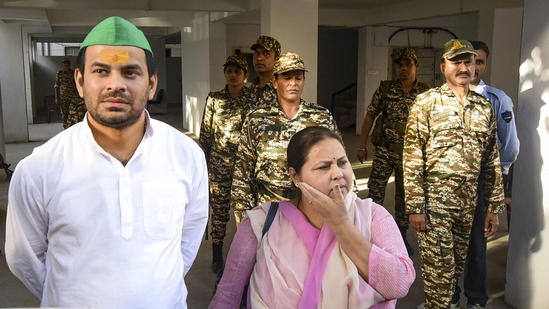Asim Munir’s Promotion to Field Marshal Faces Widespread Criticism and Global Mockery
Pakistan’s newly promoted Army Chief, Asim Munir, has been the subject of intense ridicule after receiving the rare title of Field Marshal, making him only the second person in Pakistan’s history to be bestowed with the five-star rank. However, his promotion, which came after the Pakistani military faced significant setbacks during recent conflicts with India, especially after India’s “Operation Sindoor,” has been met with widespread skepticism.
This skepticism turned into ridicule when sections of the Pakistani diaspora in New York funded a digital billboard in Times Square that labeled Munir as a “Loser,” “Fraud Marshal,” and “Liar,” mocking not only his promotion but also his political affiliations. The billboard campaign quickly gained attention on social media, reflecting growing dissatisfaction with Pakistan’s military leadership and its perceived political maneuvering.
Asim Munir’s Promotion and its Public Backlash
Asim Munir’s promotion to Field Marshal was officially justified as a recognition of his “exemplary role” during recent military operations. However, the timing of his promotion raised eyebrows, particularly after the heavy losses suffered by Pakistan’s military, especially in the context of India’s military superiority during the aforementioned “Operation Sindoor.” The operation, which severely damaged Pakistan’s air defenses, led many to question the basis of Munir’s promotion. Critics suggested that the title of Field Marshal was more a political maneuver rather than an acknowledgment of military achievement.
The skepticism surrounding Munir’s promotion was only amplified when the digital billboard campaign appeared in New York’s Times Square. Funded by segments of the Pakistani diaspora, the billboard targeted Munir, calling him a “Fraud Marshal” and “Loser.” The messages also mocked Munir’s political ties to former Pakistani leaders Asif Ali Zardari and Nawaz Sharif, both of whom have been central figures in Pakistan’s political establishment. The billboard campaign also positioned Imran Khan, Pakistan’s former Prime Minister, as the “real hero,” further highlighting the ongoing political divide in the country.
The Times Square Billboard Campaign and Global Mockery
The billboard, which gained widespread attention on social media platforms, became a viral sensation, with netizens, both from Pakistan and India, joining in the mockery. Social media users coined terms like “Failed Marshal” and “Fraud Marshal” to ridicule Munir’s promotion, suggesting it was more of a political move than a recognition of genuine military success. The campaign also brought attention to the ongoing imprisonment of Imran Khan, Pakistan’s former Prime Minister, accusing Munir of political repression under his leadership.
Times Square illuminated with Liar Fraud Marshal Asim Munir - The deceiver with his two crooks - Zardari and Sharif! Bezatti of Munir at International level by Pakistani diaspora themselves after being defeated in Military confrontation by India badly. 🤣🤣🤣 🤣🤣🤣 pic.twitter.com/aSaWbXem8P
— Aditya Raj Kaul (@AdityaRajKaul) June 5, 2025
The billboard campaign has been viewed as a major international embarrassment for Pakistan. The country’s own diaspora, which funded the billboard, publicly criticized the military leadership in one of the world’s most iconic locations. Critics have pointed out that the Pakistani government and military are engaging in expensive PR stunts while the country faces severe economic challenges, with some sarcastically suggesting that the International Monetary Fund (IMF) might be “funding” such propaganda. This campaign underscores the growing discontent among overseas Pakistanis, who see the military’s influence in politics as a significant barrier to the country’s progress.
The public ridicule of Asim Munir and the controversial billboard campaign highlight the widening gap between Pakistan’s military elite and its people, both at home and abroad. The incident serves as a symbol of the deep frustration and growing disconnect felt by many Pakistanis toward the military’s role in the nation’s governance.





















